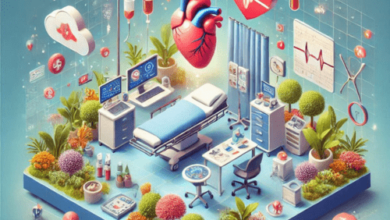Let’s be honest — when most people think of a pharmacy, they imagine standing in line at a big chain, eyeing impulse buys while a tired tech bags up a prescription. In and out. No frills. No small talk. And usually, no real sense of connection. That’s fine for a quick antibiotic or allergy med. But for the people living in nursing homes, assisted living facilities, or specialized group homes? That version of pharmacy just doesn’t cut it.
That’s where long-term care pharmacy services come in. Or as the professionals call it: LTC pharmacy. Behind the curtain of day-to-day care, there’s a whole world of pharmacists, consultants, and medication technicians quietly working to make sure residents get the right meds, at the right time, in the safest way possible. No spotlight. No applause. But absolutely essential.
And one of the names that’s popped up again and again in this space? Pharmcare.
Pharmcare services are designed specifically for long-term care. That means their teams aren’t juggling customers with shopping carts or pushing vaccine appointments while counting pills. They’re laser-focused on the complex needs of patients who depend on daily medication management. And that makes all the difference.
Think about what it means to take ten different medications a day. Now multiply that across an entire facility. Every resident has different allergies, dosages, timing schedules, and doctor updates. That’s not just a spreadsheet problem — it’s a human safety issue. One misplaced pill or one overlooked chart note can cause a serious event.
Pharmcare steps in with systems and staff that are trained for this exact chaos.
We’re talking personalized packaging that actually makes sense during med pass. Clear labeling. Refill coordination. Real-time updates when a doctor changes a script. They don’t just drop off a box of bottles — they create a process that works for caregivers, nurses, and residents alike. One that reduces the risk of human error without adding more stress to an already overworked team.
And they show up. That’s maybe the biggest differentiator. When something goes wrong (and in long-term care, something always goes a little sideways), Pharmcare doesn’t ghost you or shuffle you through three departments. They get involved. They troubleshoot. They help fix it — fast.
One nurse I spoke with from a skilled nursing facility said it best: “It’s not just about getting the meds here on time. It’s that I can call them and say, ‘Something’s not right,’ and they actually listen. They actually care.”
It sounds simple. But it’s rare. And deeply needed.
Pharmcare also employs consultant pharmacists — professionals who review charts, evaluate drug interactions, flag risky combos, and work with staff to ensure residents aren’t being overmedicated or stuck on prescriptions that no longer make sense. It’s an extra set of trained eyes. A safety net. And honestly, a comfort.
Beyond that, their services usually plug into the facility’s electronic medication administration record (eMAR) system. That means real-time updates, accurate reporting, and one less excuse for communication breakdowns. Is it perfect? Of course not. But it’s way more efficient than the post-it-note-and-hope method some facilities end up defaulting to when they’re stretched too thin.
The term ltc pharmacy services might sound clinical, but the impact is intensely human. It’s about the 86-year-old woman whose Parkinson’s meds arrive correctly packed, so she doesn’t miss a dose. It’s about the caregiver who doesn’t have to panic on a Saturday because the refill came through on time. It’s about families who can breathe just a little easier knowing someone is double-checking things behind the scenes.
And this is where Pharmcare shines. They don’t make noise. They don’t make promises they can’t keep. They just handle the details — the deeply unsexy, absolutely critical details — that keep long-term care facilities running.
There’s a quiet professionalism to it. A kind of integrity that shows up in small ways: correctly printed MAR sheets, after-hours support, respectful communication, and delivery drivers who know the front desk staff by name. You can’t automate that kind of connection.
Let’s be real — long-term care is one of the toughest corners of healthcare. High demands. Tight staffing. Constant change. The pharmacy piece is just one slice of the pie, but if it’s off? Everything’s off. That’s why having a partner — not just a vendor — matters so much.
If you’ve been in this world long enough, you stop being impressed by buzzwords and logos. You start asking better questions: Do they follow through? Do they make life easier or harder? Do they make the job safer?
And in that context, pharmcare services speak for themselves.
So whether you’re a facility administrator trying to get meds sorted more efficiently, a nurse juggling five tasks at once, or a family member trying to understand what “pharmacy care” really looks like in a place your loved one now calls home — know this: there are people doing the quiet, crucial work right.
And sometimes, they’re just called Pharmcare.





